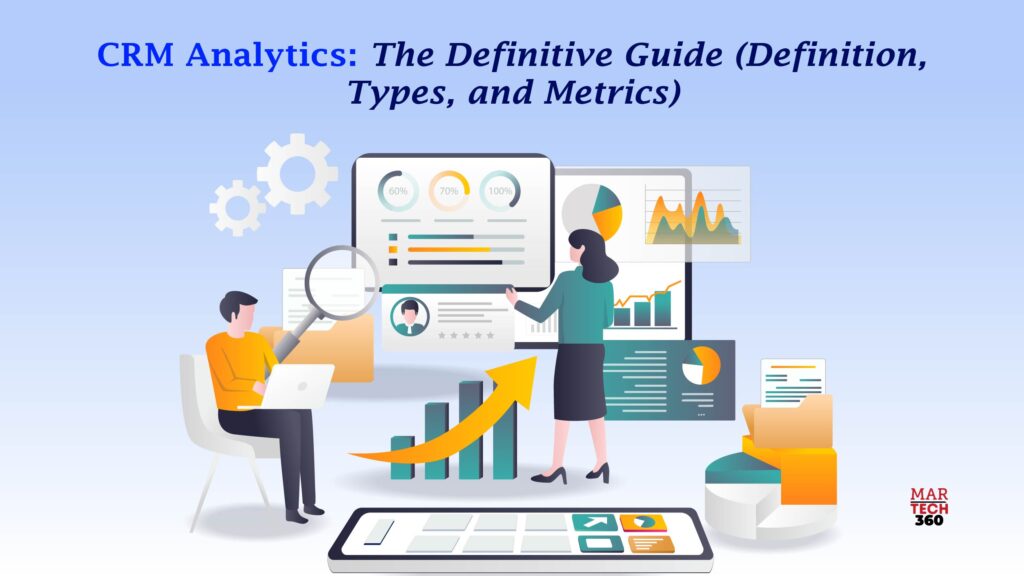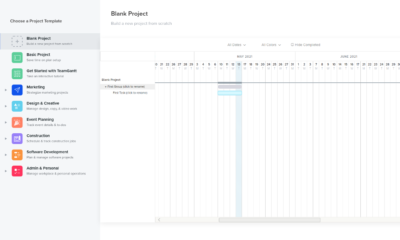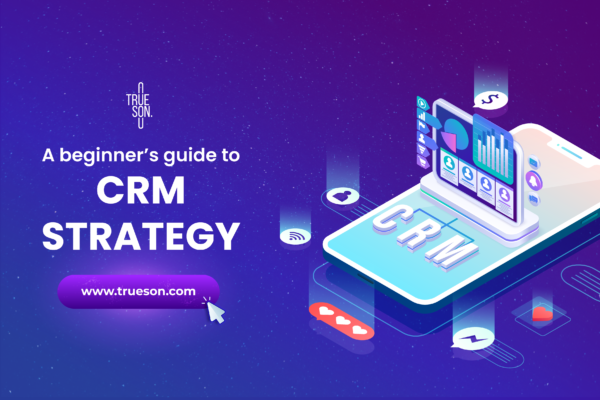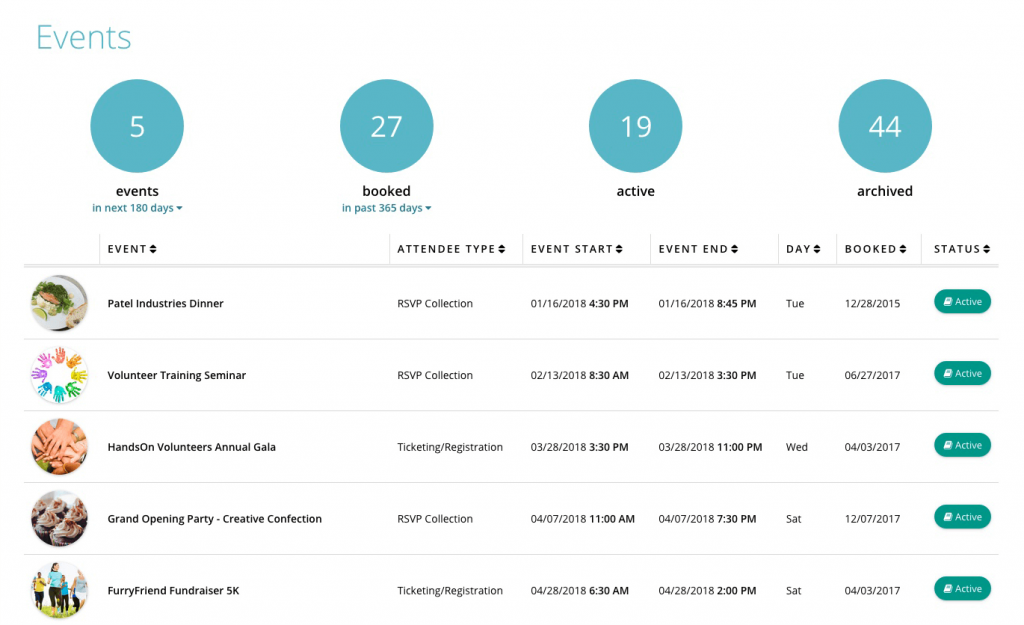Unlocking Growth: A Deep Dive into CRM Marketing Analytics Tools

Unlocking Growth: A Deep Dive into CRM Marketing Analytics Tools
In today’s hyper-competitive business landscape, simply having a Customer Relationship Management (CRM) system isn’t enough. You need to understand your customers, predict their behavior, and personalize their experiences. That’s where CRM marketing analytics tools come in. These powerful instruments transform raw customer data into actionable insights, enabling businesses to make data-driven decisions, optimize marketing campaigns, and ultimately, drive growth. This article delves deep into the world of CRM marketing analytics tools, exploring their functionalities, benefits, and how to choose the right ones for your specific needs.
What are CRM Marketing Analytics Tools?
At their core, CRM marketing analytics tools are designed to collect, analyze, and interpret customer data to provide insights into marketing performance and customer behavior. They integrate seamlessly with your CRM system, pulling data from various sources like website interactions, email campaigns, social media activity, and sales transactions. This data is then processed using sophisticated algorithms to identify trends, patterns, and correlations that would be impossible to discern manually. The tools present these insights through interactive dashboards, reports, and visualizations, making it easy for marketers to understand complex data and make informed decisions.
Key Features and Functionalities
CRM marketing analytics tools offer a wide range of features, but some of the most common and valuable functionalities include:
- Customer Segmentation: Grouping customers based on shared characteristics like demographics, purchase history, behavior, and engagement levels. This allows for targeted marketing campaigns and personalized messaging.
- Campaign Performance Analysis: Tracking and measuring the effectiveness of marketing campaigns, including metrics like click-through rates, conversion rates, return on investment (ROI), and cost per acquisition (CPA).
- Lead Scoring: Identifying and prioritizing leads based on their likelihood to convert into customers. This helps sales teams focus their efforts on the most promising prospects.
- Customer Lifetime Value (CLTV) Analysis: Predicting the total revenue a customer is expected to generate throughout their relationship with a business. This helps businesses understand which customers are most valuable and how to retain them.
- Churn Prediction: Identifying customers who are at risk of churning (canceling their subscriptions or stopping their purchases) and developing strategies to prevent them from leaving.
- Sales Forecasting: Predicting future sales based on historical data and current trends. This helps businesses plan their inventory, staffing, and marketing budgets.
- Marketing Attribution: Determining which marketing channels and touchpoints are most effective in driving conversions. This allows businesses to optimize their marketing spend and allocate resources more efficiently.
- Personalization: Using customer data to personalize website content, email communications, and other marketing materials, leading to increased engagement and conversions.
- Reporting and Dashboards: Providing interactive dashboards and customizable reports that visualize key metrics and insights, making it easy to track progress and identify areas for improvement.
- Integration with Other Tools: Seamlessly integrating with other marketing and sales tools, such as email marketing platforms, social media management tools, and e-commerce platforms, to create a unified view of the customer.
The Benefits of Using CRM Marketing Analytics Tools
Implementing CRM marketing analytics tools can yield a multitude of benefits for businesses of all sizes. These advantages include:
- Improved Marketing ROI: By analyzing campaign performance and identifying the most effective marketing channels, businesses can optimize their marketing spend and achieve a higher return on investment.
- Increased Sales: By identifying and prioritizing high-potential leads, sales teams can focus their efforts on the most promising prospects, leading to increased sales and revenue.
- Enhanced Customer Experience: By understanding customer behavior and preferences, businesses can personalize their marketing efforts and provide a more relevant and engaging customer experience.
- Reduced Customer Churn: By identifying customers who are at risk of churning, businesses can proactively implement strategies to retain them and reduce customer attrition.
- Data-Driven Decision Making: By providing actionable insights, CRM marketing analytics tools empower businesses to make data-driven decisions, leading to more effective marketing strategies and improved business outcomes.
- Increased Efficiency: By automating data analysis and reporting, these tools free up marketers’ time, allowing them to focus on more strategic initiatives.
- Competitive Advantage: By gaining a deeper understanding of their customers and marketing performance, businesses can gain a competitive advantage in the marketplace.
- Better Resource Allocation: Understanding which marketing activities are most effective allows businesses to allocate their resources (time, budget, personnel) more efficiently.
- Improved Lead Quality: Lead scoring helps filter out unqualified leads, ensuring sales teams spend time on prospects most likely to convert.
- Proactive Customer Service: Analyzing customer behavior can help identify potential issues before they escalate, allowing for proactive customer service interventions.
Choosing the Right CRM Marketing Analytics Tools
Selecting the right CRM marketing analytics tools for your business can be a daunting task. With so many options available, it’s important to carefully consider your specific needs and requirements. Here are some key factors to consider:
- Your Business Goals: What are your primary objectives? Are you looking to increase sales, improve customer retention, or optimize marketing campaigns? Your goals will influence the types of features and functionalities you need.
- Your CRM System: Does the tool integrate seamlessly with your existing CRM system? Compatibility is crucial for data flow and ease of use.
- Data Sources: What data sources do you want to analyze? Ensure the tool can connect to the relevant data sources, such as website analytics, email marketing platforms, and social media channels.
- Features and Functionalities: Does the tool offer the features and functionalities you need, such as customer segmentation, campaign performance analysis, and lead scoring?
- Ease of Use: Is the tool user-friendly and easy to navigate? Look for a tool with an intuitive interface and clear visualizations.
- Reporting and Dashboards: Does the tool provide customizable reports and dashboards that meet your reporting needs?
- Scalability: Can the tool scale to accommodate your future growth?
- Pricing: What is the pricing model? Does it fit within your budget? Consider the total cost of ownership, including implementation, training, and ongoing maintenance.
- Customer Support: Does the vendor offer adequate customer support and training?
- Reviews and Ratings: Research reviews and ratings from other users to get an idea of the tool’s strengths and weaknesses.
- Integration Capabilities: Does the tool integrate with other tools in your marketing tech stack? Seamless integration saves time and improves data flow.
Top CRM Marketing Analytics Tools in the Market
The market is saturated with excellent CRM marketing analytics tools. Here are a few leading examples, each with its own strengths:
- HubSpot Marketing Hub: A comprehensive marketing platform that offers robust analytics features, including campaign tracking, website analytics, and lead scoring. It integrates seamlessly with HubSpot’s CRM. HubSpot excels in ease of use and is a great choice for businesses of all sizes.
- Zoho CRM Analytics: Part of the Zoho suite, this tool offers powerful data visualization and reporting capabilities. It integrates well with Zoho CRM and other Zoho apps. Zoho CRM Analytics is known for its affordability and robust features.
- Salesforce Einstein Analytics (Tableau CRM): A powerful analytics platform that integrates with Salesforce CRM. It offers advanced data visualization, predictive analytics, and AI-powered insights. Salesforce Einstein Analytics is a premium option suitable for larger enterprises with complex data needs.
- Pardot (Salesforce Marketing Cloud): Designed specifically for B2B marketing, Pardot offers features like lead nurturing, marketing automation, and detailed analytics to track campaign performance and ROI.
- SharpSpring: An all-in-one marketing automation platform that includes robust analytics features, such as campaign tracking, lead scoring, and website tracking. SharpSpring is known for its user-friendly interface and focus on automation.
- Act-On: Another comprehensive marketing automation platform that offers powerful analytics capabilities, including campaign tracking, lead scoring, and revenue attribution. Act-On is a good choice for businesses looking for a comprehensive marketing solution.
- Adobe Marketo Engage: A sophisticated marketing automation platform with advanced analytics features, including revenue attribution, cross-channel campaign analysis, and customer journey mapping. Adobe Marketo Engage is a premium option suitable for large enterprises with complex marketing needs.
- Mixpanel: A product analytics tool that focuses on user behavior and engagement. It’s particularly useful for analyzing how users interact with your website or app.
When selecting a tool, it’s vital to consider your business size, budget, and specific marketing needs. What works for one company might not be the perfect fit for another. Consider conducting free trials or demos of several tools before making a final decision.
Implementing CRM Marketing Analytics Tools: Best Practices
Once you’ve chosen the right CRM marketing analytics tools, successful implementation is key to realizing their full potential. Here are some best practices to follow:
- Define Your Goals: Clearly define your marketing goals and objectives before implementing the tool. This will help you determine which metrics to track and how to measure success.
- Clean and Organize Your Data: Ensure that your data is clean, accurate, and well-organized. This will improve the accuracy of your analysis and insights.
- Integrate with Your CRM: Ensure that the tool is properly integrated with your CRM system and other relevant data sources.
- Train Your Team: Provide adequate training to your team on how to use the tool and interpret the data.
- Start Small and Iterate: Start with a small set of features and gradually expand your use of the tool as you become more comfortable with it.
- Regularly Review and Optimize: Regularly review your data and insights to identify areas for improvement. Continuously optimize your marketing campaigns based on your findings.
- Establish Key Performance Indicators (KPIs): Determine the KPIs that are most important to your business goals and regularly monitor them.
- Focus on Actionable Insights: Don’t just collect data for the sake of it. Focus on extracting actionable insights that can inform your marketing strategies.
- Automate Where Possible: Leverage automation features to streamline data analysis and reporting.
- Stay Up-to-Date: The marketing landscape is constantly evolving. Stay up-to-date on the latest trends and best practices in CRM marketing analytics.
The Future of CRM Marketing Analytics
The field of CRM marketing analytics is constantly evolving, with new technologies and trends emerging all the time. Here are some key trends to watch:
- Artificial Intelligence (AI) and Machine Learning (ML): AI and ML are becoming increasingly integrated into CRM marketing analytics tools, enabling more accurate predictions, personalized recommendations, and automated insights.
- Predictive Analytics: Businesses are increasingly using predictive analytics to forecast future trends and customer behavior, allowing them to proactively adjust their marketing strategies.
- Cross-Channel Attribution: Marketers are focusing on understanding the customer journey across multiple channels and attributing conversions to the appropriate touchpoints.
- Personalization at Scale: Businesses are leveraging data to personalize marketing messages and experiences at scale, leading to increased engagement and conversions.
- Data Privacy and Security: With increasing concerns about data privacy, businesses are prioritizing data security and compliance with regulations like GDPR and CCPA.
- Integration of IoT Data: The Internet of Things (IoT) is generating vast amounts of data that can be used to enhance CRM marketing analytics, providing insights into customer behavior and preferences.
- Focus on Customer Experience (CX): Businesses are increasingly focusing on improving the customer experience, using data to create more personalized and relevant interactions.
As these trends continue to evolve, CRM marketing analytics tools will become even more sophisticated and essential for businesses looking to thrive in the competitive marketplace.
Conclusion
CRM marketing analytics tools are no longer a luxury; they are a necessity for businesses that want to understand their customers, optimize their marketing efforts, and drive growth. By leveraging these powerful tools, businesses can transform raw customer data into actionable insights, personalize customer experiences, and achieve a higher return on investment. Choosing the right tools, implementing them effectively, and staying up-to-date with the latest trends are crucial for success. Embrace the power of data and unlock the potential for growth in your business. The future of marketing is data-driven, and those who embrace it will be best positioned to succeed.





